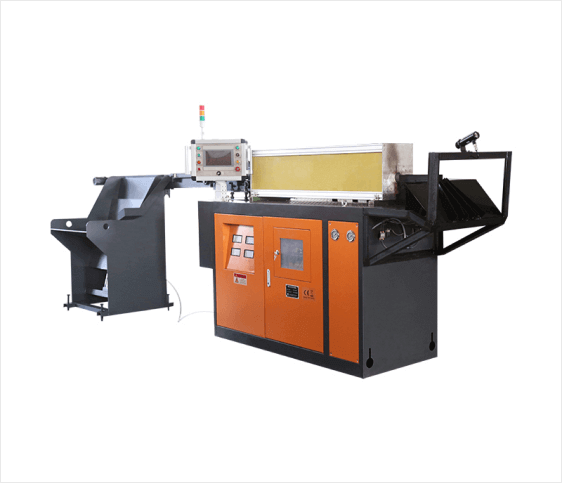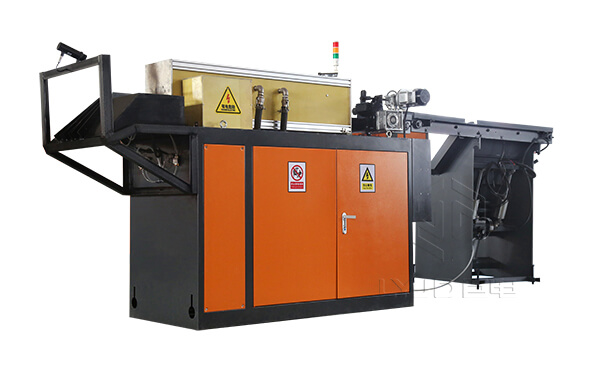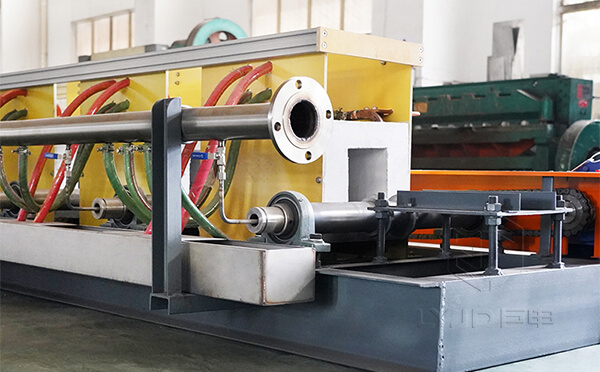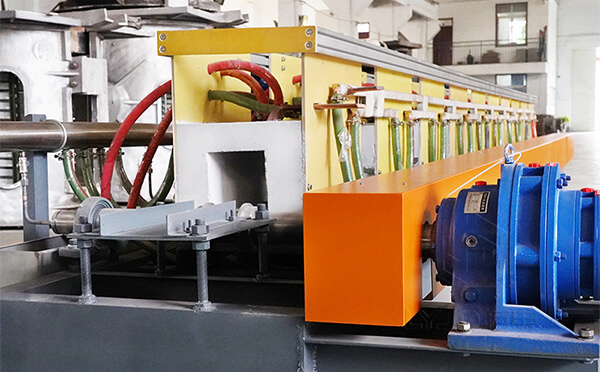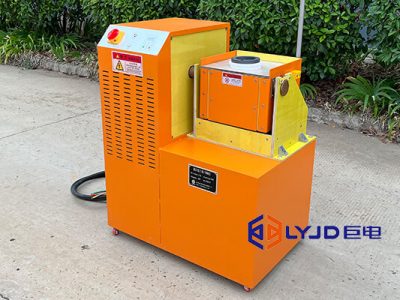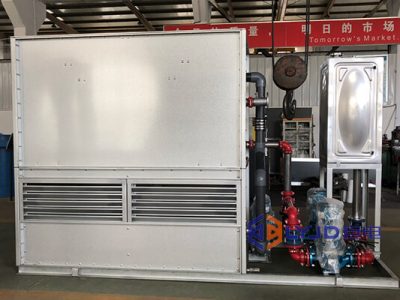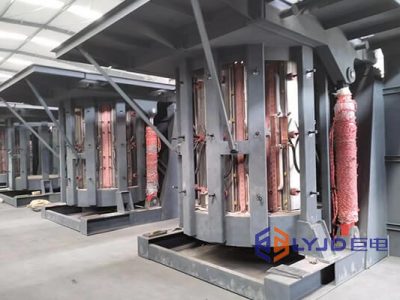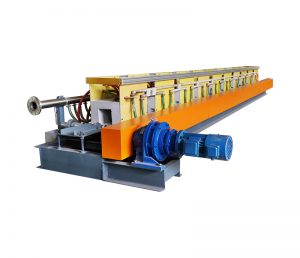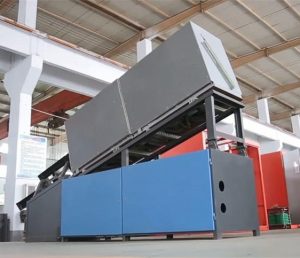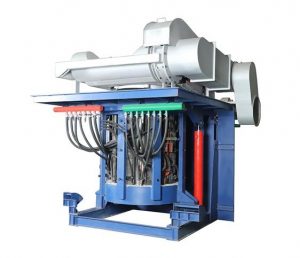Are you looking for a billet heating furnace that will significantly promote your metal manufacturing processes? You will get it here. In this blog, I will introduce an induction billet heater to you, including what it is, what advantages it has, and how it can improve your production process. Let’s dive deep to find more.
What Is an Induction Billet Heater?
An induction billet heater is a type of industrial heating equipment that utilizes electromagnetic induction to heat metal billets or bars to a specific temperature for various manufacturing processes. It is commonly used in industries such as forging, heat treatment, and metal forming.
The working principle of an induction billet heater involves the generation of a high-frequency alternating magnetic field. When a conductive metal billet is placed within this magnetic field, eddy currents are induced within the billet due to electromagnetic induction. These eddy currents generate heat through resistance, causing the billet to rapidly and uniformly heat up.
Advantages of an Induction Billet Heater
An induction billet heater is a sophisticated and advanced industrial heating equipment that utilizes the principles of electromagnetic induction to efficiently and precisely heat metal billets or bars for a wide range of manufacturing processes. It has become an indispensable tool in industries such as forging, heat treatment, and metal forming, where accurate and controlled heating is critical.
Efficient and Rapid Heating
Induction heating is recognized for its exceptional efficiency as it directly heats the metal billet without the need for an intermediary heating medium. This eliminates heat transfer losses and enables faster heating rates, significantly reducing cycle times compared to conventional methods.
Precise Temperature Control
Induction billet heaters enable precise temperature control, ensuring that the billet reaches and maintains the desired temperature with remarkable accuracy. This level of control minimizes the risk of overheating or underheating, resulting in consistent and high-quality heating outcomes.
Uniform Heating Distribution
Induction heating provides remarkable uniformity in heating throughout the billet. This uniformity is essential in processes such as forging or heat treatment, where consistent heating is crucial for achieving desired material properties and ensuring product quality.
Energy Efficiency and Cost Savings
Induction billet heaters are renowned for their energy efficiency. The absence of external heating media, such as gas or flames, eliminates energy losses associated with combustion. Additionally, advanced power control systems and insulation techniques contribute to further energy savings, translating into reduced operating costs.
Clean and Environmentally Friendly
Induction heating is an environmentally friendly heating method. It produces no direct emissions and does not rely on the combustion of fossil fuels, leading to a significant reduction in air pollution and greenhouse gas emissions. This aligns with the growing global focus on sustainability and environmental stewardship.
Compact Design and Space-Saving
Induction billet heaters are designed to be compact, occupying minimal floor space compared to other heating methods. This compactness allows for easy integration into existing manufacturing setups, optimizing space utilization and promoting efficient production layouts.
Improved Safety
Induction billet heaters incorporate advanced safety features, surpassing those of open-flame or resistance heating methods. Since induction heating does not require direct contact with a heat source, the risk of operator burn injuries or material damage due to overheating is significantly reduced. This enhances workplace safety and minimizes potential accidents.
An induction billet heater is a versatile equipment that can be customized to suit specific heating requirements, such as different billet sizes, shapes, and material types. They find applications in various industries where precise and efficient heating of metal billets is essential for downstream manufacturing processes.
Benefits of an Induction Billet Heater to Industry 4.0
The integration of induction billet heaters into Industry 4.0 brings a multitude of benefits to manufacturing processes, revolutionizing the way heating operations are conducted. By seamlessly connecting induction billet heaters with the broader digital framework of Industry 4.0, manufacturers can unlock new levels of efficiency, productivity, and flexibility. Here are some key benefits.
Real-Time Monitoring and Optimization
Industry 4.0 enables the implementation of real-time monitoring systems for induction billet heaters. Through the use of sensors and connected devices, data on critical parameters such as temperature, power consumption, and process variables can be collected and analyzed instantaneously. This wealth of data empowers manufacturers to ensure optimal performance, detect anomalies, and make timely adjustments to improve efficiency and productivity. By leveraging advanced analytics and machine learning algorithms, manufacturers can uncover valuable insights that lead to process optimization, reduced energy consumption, and enhanced product quality.
Predictive Maintenance and Reduced Downtime
The integration of induction billet heaters with Industry 4.0 opens the door to predictive maintenance strategies. By analyzing the vast amount of real-time data collected from the heating process, manufacturers can identify patterns and indicators of potential equipment failures or maintenance needs. Predictive maintenance techniques enable proactive planning and intervention, reducing unplanned downtime and minimizing the risk of costly breakdowns. By addressing maintenance needs in a timely manner, manufacturers can optimize equipment utilization, extend the lifespan of the induction billet heaters, and ensure uninterrupted production.
Remote Control and Automation
Industry 4.0 enables remote control and automation of induction billet heaters, transforming the way heating processes are managed. With connectivity and advanced control systems, operators can monitor and control multiple heating processes from a centralized location. This eliminates the need for manual intervention, reduces the risk of human error, and improves process consistency. Remote control capabilities also enable rapid adjustments and fine-tuning of heating parameters, allowing manufacturers to quickly respond to changing production requirements and optimize heating operations for different billet sizes, materials, or desired outcomes.
Data-Driven Optimization and Continuous Improvement
The integration of induction billet heaters into Industry 4.0 paves the way for data-driven optimization. By analyzing the wealth of data collected from the heating process, manufacturers can identify inefficiencies, pinpoint areas for improvement, and optimize heating parameters for maximum performance. Advanced analytics and machine learning techniques can uncover hidden correlations and patterns, enabling manufacturers to fine-tune heating processes, improve energy efficiency, and reduce material waste. This data-driven approach facilitates a culture of continuous improvement, where manufacturers can iteratively refine their heating operations, enhance product quality, and achieve higher levels of operational excellence.
Integration with Supply Chain and Enhanced Collaboration
Industry 4.0 integration allows for the seamless integration of induction billet heaters with the broader supply chain ecosystem. Through the use of digital platforms and connectivity, manufacturers can share real-time production data with suppliers and customers. This enhanced collaboration and transparency enable better coordination, demand forecasting, and inventory management. Manufacturers can optimize their production schedules based on real-time demand signals, reduce lead times, and ensure timely delivery of products. The integration with the supply chain ecosystem also facilitates effective traceability, enabling manufacturers to track and trace product quality parameters, comply with regulatory standards, and efficiently manage recalls if necessary.
Operational Flexibility and Agile Manufacturing
The integration of induction billet heaters into Industry 4.0 provides manufacturers with enhanced operational flexibility. With digital connectivity and interoperability, manufacturers can easily reconfigure heating processes to adapt to changing product requirements, production volumes, or market demands. This flexibility allows for agile manufacturing strategies, where manufacturers can quickly switch between different billet sizes or materials, respond rapidly to customer demands, and optimize production schedules on the fly. By embracing agility, manufacturers can achieve faster time-to-market, capitalize on emerging opportunities, and gain a competitive edge in dynamic market environments.
Overall
The integration of induction billet heaters into Industry 4.0 offers a transformative opportunity for manufacturers. It enables them to unlock new levels of efficiency, productivity, and competitiveness. By harnessing the power of real-time data, advanced analytics, and connectivity, manufacturers can optimize their heating operations, drive continuous improvement, and stay at the forefront of the evolving manufacturing landscape.
